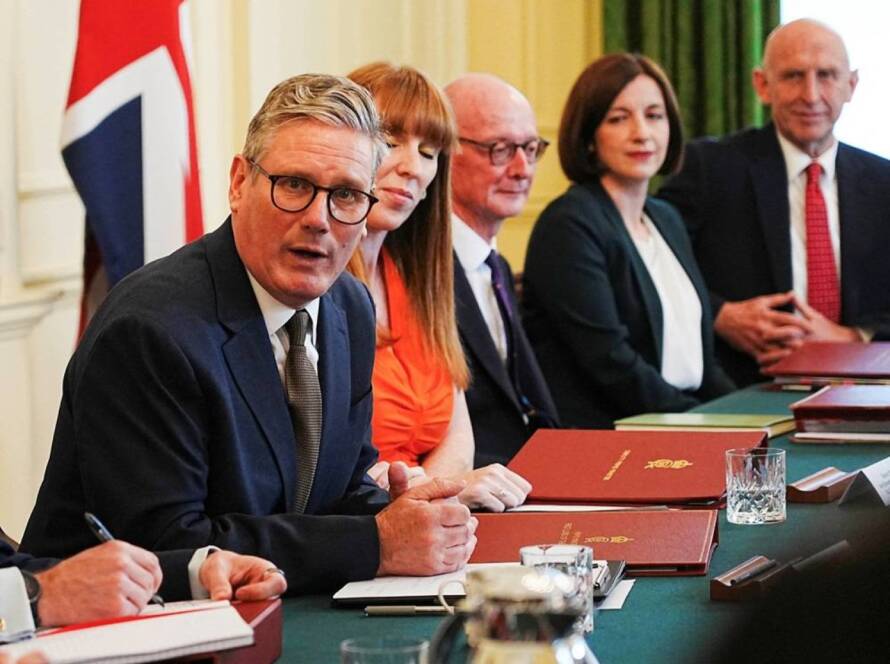By Aavin Abeydeera
Donald Trump is the new president of the free world once again. This time around, there has been very little questioning about his ascendancy, despite the magnitude of this popularity in the voting booths.
Winning both the electoral college and the popular vote, Trump has ridden a wave of incredible support. There has been little question whether he has the mandate to rule: the American public has made a choice, and that choice has come blazing in with a MAGA hat and a red tie.
The birth pangs of his second term have been loud, with him undertaking a radical overhaul of American domestic and foreign policy, alongside a controversial and much talked-about administration.
Even to those with a cursory knowledge of Trump and his previous presidency, his proposed policy overhaul should be no surprise – but what may be surprising, and give cause for concern for some, and celebration for others, is that Trump has doubled down on his policies that he enacted during his first term.
Trump first picked up steam in his first bid for the presidency by vowing to crack down on illegal immigration, going so far as to using “build the wall” as one of his campaign slogans.
This time around, Trump has vowed to enforce mass deportations, terminate work permits for undocumented immigrants, and designate drug cartels as foreign terrorist organizations. He also plans to establish a compensation fund for victims of crimes committed by undocumented immigrants by seizing assets from criminal gangs.
This policy outline has been on par for the course for Trump, whose most fervent supporter base has been the white middle class, who have long felt that illegal immigration has long since threatened national security, and has exacerbated crime within the country, due to the relative invisibility of illegal immigrants.
Of course, while his immigration policy has drawn obvious criticism, such as xenophobia and human rights abuses by the United States Immigration and Customs Enforcement Agency, what has been of positive note has been his economic policy- with a proven track record to show for it.
During the first three years of his presidency, the Trump administration was able to create more than 6.7 million new jobs, while bringing down unemployment down to 3.5%, according to the U.S Department of the Interior, as well as the Federal Reserve.
However, unemployment during the pandemic reached record highs, and it was during his mismanagement of the said pandemic that an uneasy approval during his presidency nosedived into pandemonium, resulting in Biden winning in the 2020 election. Ironically, Trump’s win in 2024 was fueled by the Biden administration’s economic downturn as well.
His economic plans this time are of the same protectionist flavor this time around, and include significant tariffs, including a 60% levy on Chinese imports and a broader range of protectionist policies like banning investments between US and Chinese companies. Already he has threatened tariffs on Canada and Mexico unless they do help stem the tide of illegal immigration.
Additionally, Trump has promised new tax cuts across various income levels and aims to end taxation on Social Security. However, whether the American economy has what it takes to perform with these slashed taxes, while already on a budget deficit, and with a debt-to-GDP ratio of 122%, is a pressing concern from an economical perspective.
Regardless of the numbers, a clear pattern can be seen; Trump’s vision is not necessarily hampered by numbers, but by ideology – “America First”. This ideology is not marked so much by its vested interest in doing right by the American public, but by a conviction to “flip off” the world at large, even if doing so is not in the best interest of America – mirroring the contrarian values that Trump so often encapsulates.
Here is where Trump’s isolationistic brinksmanship comes into the fore- many of his policies are not necessarily the product of years of planning, but rather the product of waves of populism – reactionary stances made to “fight back” against a world that Trump sees as restricting America’s interests. Whether these are America’s interests, or his own, is another question entirely.
Of course, a showman needs a stage, and behind the curtains is a staunchly loyal cabinet that is filled with figures who have endorsed Trump from the beginning. Matt Gaetz, once tipped as the new Attorney General, and a staunch Trump ally, was set to oversee Justice Department reforms. When allegation upon allegation scoured him, he withdrew and had to be replaced by another hard-right ideologue – Pam Bondi.
The new Homeland Security Secretary, Kristi Noem, known for her tough stance on immigration, will likely spearhead Trump’s deportation and border security agenda – something that has long been a key interest for Trump, stemming from a vision to maintain both national integrity, and prevent what he has deemed “unwanted” citizens of their own country to “infiltrate” his.
Robert F. Kennedy Jr., with a controversial background in public health, amidst his anti-vaxx stances, aims to overhaul regulatory agencies and address chronic disease epidemics, as the US Secretary of Health and Human Services.
The new CIA Director John Ratcliffe, returning from his prior intelligence role under Trump, is set to be a leading figure in the US intelligence apparatus, despite concerns, even from inside the Republican Party, that introducing a political figure to such a delicate position might not be in the best interests of the defense network of the United States.
However, not even these politically charged appointments take the cake for Trump’s most eccentric appointments – despite the US government’s relatively stable track record of departmental portfolio’s, Trump is set to create a brand-new “Department of Governmental Efficiency”, nicknamed DOGE, headed by Elon Musk and Vivek Ramaswamy.
This new presidential advisory commission carries so many questions for the Trump administration – of which the two biggest are as follows.
Firstly, there is the question of how it plans to slash the federal budget by a third, abolish 75% of federal agencies, and still plan to maintain a functioning government.
Secondly, the question of whether or not this development marks a dangerous conflict of interest for Elon Musk, whose companies are regular contractors for the US government.
Musk’s platform X has long been a mouthpiece for conservative elements in American politics and citizenry, as well as Trump himself – whose ban on Twitter was lifted following Musk’s takeover of the company.
Trump has never shied away from accepting the truth – If one were to accuse him of setting up a cabinet and administration of nepotism and self-interest, he would proudly accept it, and he may have a point. With Congress in his hand, Trump’s thinking to fill in the seats with those loyal to him and his vision would make the most sense to overhaul American politics.
Trump’s policies and personnel so far have made for good press and political commentary from a third-world perspective, but have far reaching consequences, many of them of pressing concern for many parts of the world.
Trump’s resurgence and do-over as Commander-In-Chief could be a harbinger of things to come. On a personal scale, it could mean more freedom to carry firearms, but less personal freedoms for minorities and marginalized groups of race and sex.
So far, all of this has been for the American to worry about. Why exactly should the rest of the world care? Here is why; the rest of the world should care, because Trump’s foreign policy, and vision for America’s place in the global order is the same as his vision looking inwards – Trump is dead-set on creating his vision of the world, whether the rest of the world likes it or not.
Aavin Abeydeera is an undergraduate at the Faculty of Law of the University of Colombo. A graduate of the Bandaranaike Centre for International Studies (BCIS), his interests range from geopolitics, economics, and foreign policy to culture and sports. He can be reached at aavinabeydeera@gmail.com.
Factum is an Asia-Pacific focused think tank on International Relations, Tech Cooperation, Strategic Communications, and Climate Outreach accessible via www.factum.lk.
The views expressed here are the author’s own and do not necessarily reflect the organization’s.


